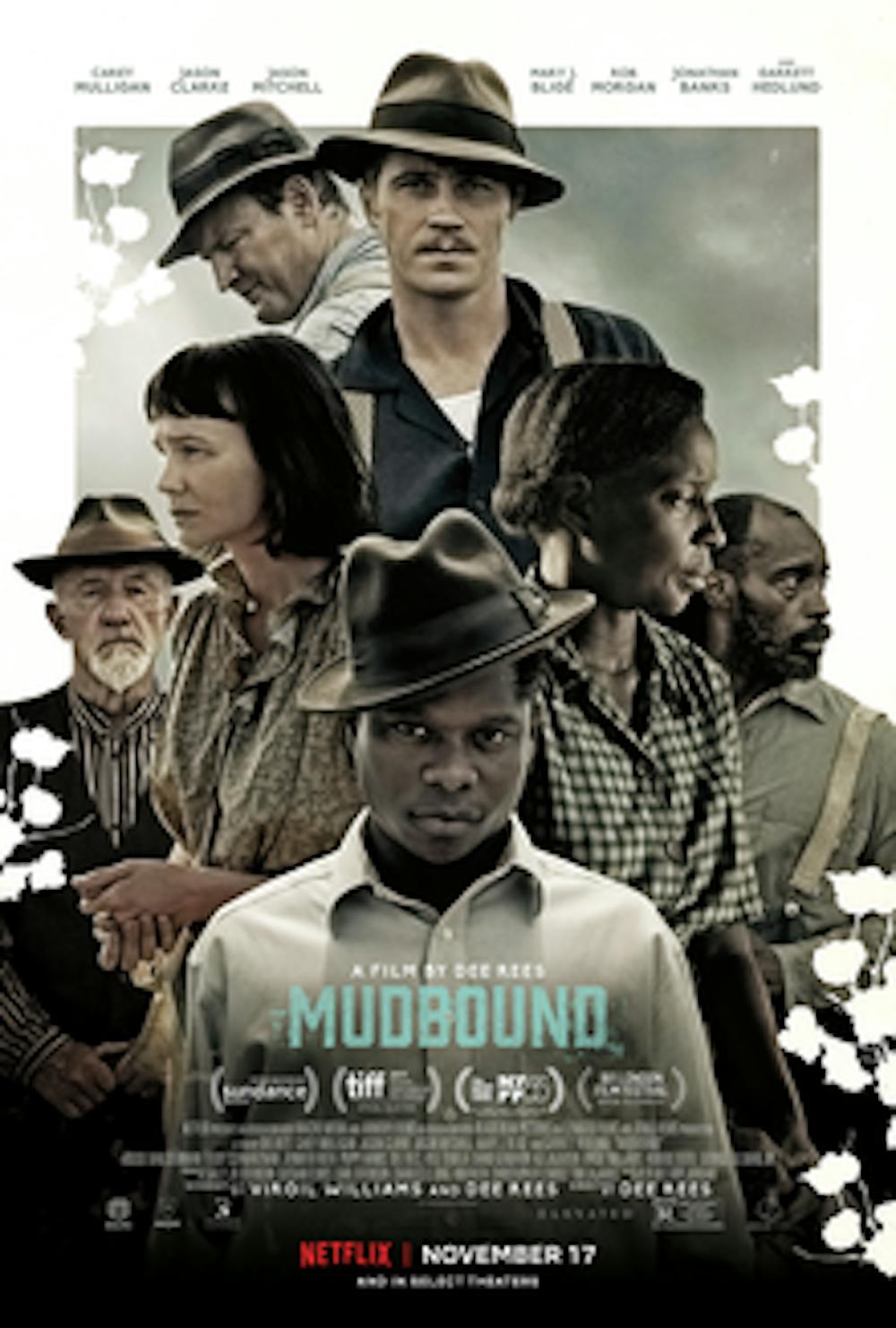“When I think of the farm, I think of mud ... I dreamed in brown,” laments Laura McAllan (Carey Mulligan) of her life in rural Mississippi in “Mudbound,” a sweeping Southern drama from Netflix. Focusing on the aftermath of World War II, “Mudbound” follows two veterans — one white, one black — as they struggle to adjust to life back home. This slow-moving but compelling drama is boosted by strong performances and fine directing from Dee Rees.
“Mudbound” tells the intertwining story of two families and their lives in the Deep South. Henry McAllan (Jason Clarke) uproots his family, including wife Laura and angry, racist father Pappy (Jonathan Banks) to move to a new farm. There they encounter the Jacksons, a family of tenant farmers led by pastor Hap (Rob Morgan), who strive for a better life while being limited by the systematic injustices of the Jim Crow-era South. When eldest son Ronsel Jackson (Jason Mitchell) returns from the war, he grapples with the prejudices he faces — a stark contrast to the respect he received in Europe.
“Mudbound” is a largely character-driven film, and succeeds at the hands of its capable performers. Mulligan is heartbreaking as the dutiful but frustrated housewife, torn between her desire for a quiet, domestic life and her unhappiness with her husband.
Similarly, Mary J. Blige gives a highly impressive performance as matriarch Florence Jackson. Florence, who makes the difficult decision to work for the McAllans, which goes against her husband’s wishes, sacrificing her own beliefs for the greater good of her family. The two women forge an uneasy but crucial bond as they both struggle under the suffocating confines of Southern life.
Mitchell excels at one of the most challenging roles as Ronsel, a veteran frustrated with post-war life who must come to terms with his life at home or find a way to escape it. Ronsel arguably faces the most turmoil of anyone in this film, and Mitchell provides a nuanced, magnetic performance. His on-screen friendship with fellow vet Jamie McAllan (Garett Hedlund) is one of the bright points of the story, and their chemistry carries much of the film.
Framed by almost poetic narration from six of the main characters, “Mudbound” reads like a novel — reasonably so, as it was adapted from the book of the same name by Hillary Jordan. While lesser directors may have allowed these voices to clutter the film, Rees expertly weaves them into the storyline, providing the audience much needed insight and omniscience into these complex characters. Remarkable cinematography from Rachel Morrison also accents the scenes with haunting yet beautiful images of the vast Mississippi farmland.
For a film set over 70 years ago, “Mudbound” maintains a startling relevancy in today’s world. Still, while a film about racism and discrimination in the Deep South would be easy to end on a note of hate, “Mudbound” bucks the trend and ends on a somehow happy note, preaching a message of love and triumph over struggle. Though perhaps far from a heartwarming film, “Mudbound” is an important one, thought-provoking as it is stunning.







